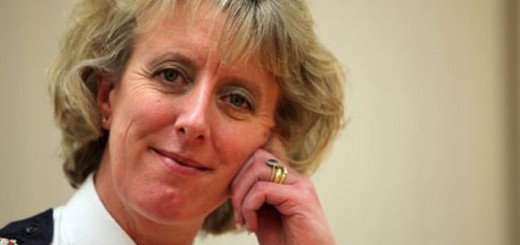Policing Sexual Harassment – Why supporting victims is right.
Supporting police officers and staff who have been bullied or sexually harassed is the right thing to do, even when it may appear to harm a force’s reputation. It will lead to a new and inclusive service that supports and develops its staff and provides a better service to the public.
A number of years ago a young in service female police officer came to speak with me. I was a Sergeant at the time, but not her supervisor. Some months before she had moved from one town to another in her role as a response driver. The team she had moved on to had been together for some time and were all midterm to longer serving officers. The officer explained that one of the male officers had been making unwanted sexual advances to her. He was a married man with children. She had initially tried to brush it off. As one of my previous blogs on bullying suggests, people when they join a new team just want to fit in and not cause any waves. The sexual advances continued. These often happened when the officers were ‘paired’ up on patrol. He asked her out on dates and proposed sexual contact. She firmly rejected his advances, but at this stage did not make a complaint to their Sergeant. The reason for this was that the Sergeant was very close to the team and lacked professional distance. She did not feel confident enough to trust him to do the right thing. Her behaviour changed. She distanced herself from the team. There were in those days traditional ‘Team Brew’ times on shifts, 0700 on early shift, 0400 on night shift. It was at these times that team bonding took place, usually in the form of banter, some more appropriate than others. The officer began to make excuses for not coming in, such as targeted patrol, paperwork etc. She also began to take her breaks on her own. The male officer began to ‘bad-mouth’ her to his colleagues. He told lies about her attitude and work ability, even suggesting that she was making sexual advances toward him. This was all calculated to keep people on his side and set the team against the officer. It got to the stage where neither he or any of his colleagues would back her up at incidents, including emergency incidents where there was a strong possibility of being assaulted. The female officer finally decided to speak with the Sergeant, who shrugged it off, saying that it was all part of the job. Following this she even had the strength to speak to the Inspector. He was close to retirement. It took a lot of courage to speak to the Inspector, who was perhaps not the most inclusive and forward thinking of police officers. He suggested that she probably had a hormonal issue, particularly when she broke down and began to cry. This was the low point and the officer had come to me to speak with me about leaving the police service altogether. I knew this officer. I had seen her ability as a probationer in training and how she had developed when working on independent patrol. She cared about what she did and worked for the community, treating people well and investigating offences thoroughly.
What had taken place was an example of Allport’s Scale of Discrimination. Originally designed to show how Nazi propaganda had led to the extermination of millions of people, including Jews, Roman Catholics, Gypsy Romany Travellers and the disabled. (See fig. 1)

Fig. 1
The other issue to consider is that of ‘victim focus’. This often occurs, as it did in this case where someone new comes in to the team. A problem arises, the other members of the team look at what has changed in the team to create a problem. In this case the team see the new arrival as the problem. Rather than focusing on the real problem, the sexual harassment of an officer, they focused on what had changed. In this case the team saw the new arrival as the cause and blamed the officer for what was happening.
In an article by Susan Cartwright and Cary L Cooper on ‘Hazards to Health: The problem of workplace bullying’ it suggests that being able to talk to someone they can trust does help. The officer chose to speak to me. She told me the was that she had seen how I behaved and the standards I set myself and others. We discussed the incidents and her options. I gave her advice including speaking to a friend I knew in the Police Federation. A lot of the fight had gone and she was clearly going to struggle to take the fight on alone. I assured her that I would support her and I told her that I would have to report the incident. I reported the matter to the Senior Management Team (SMT). Action was taken, the officer, with her consent was moved to another area, the male officer was also moved, as was the Sergeant and the Inspector was spoken to and allowed to retire without any disciplinary action being taken. For me, I did not think that this was enough. This was in the days before the Protection from Harassment Act 1997. Disciplinary action should have been taken against all involved.
What I learnt from this, was that officers who are being bullied and/or sexually harassed often go unheard, as they do not feel they will be listened to or taken seriously. As a Sergeant, you are not a friend. You can be friendly, but you set the standards of behaviour for the team to follow. Teams are much more productive when they know that everyone is treated fairly within a clear set of parameters and policies. Too many good officers leave due to a culture of sexism and bullying that is allowed to exist and goes largely unpunished. The service often covers up to preserve its reputation, when that reputation would be better served by stamping out this type of behaviour and formerly disciplining people. I am not suggesting that this lack of action goes to the top of organisations. There is something often referred to as ‘noble cause corruption’. This is where officers behave in a corrupt or improper manner as they believe they are doing the right thing. This usually involves dealing with offences or offenders in a corrupt way to secure a conviction. In this case it was more about protecting the organisation’s reputation. But as has been seen on a number of occasions in recent times, people do not change their behaviour if it goes unchecked. This can lead to much worse outcomes further down the line and have much more of an impact on the organisation’s reputation. Cases that come to mind are retired Detective Chief Inspector Martin Kay who was convicted of Harassment of a student at UCLan. It transpired that he had behaved in a similar fashion whilst serving. Another is the case of Pc Angela Vento, West Yorkshire Police who was subjected to sexual harassment, bullying and put under excessive scrutiny. She was not confirmed in post at the end of her probationary period and was dismissed.
In this case the female officer was believed, even if the action taken was weak. In many others officers and staff are not believed and either endure a unhappy work-life, leave, or in the most extreme of cases. commit suicide.



Recent Comments